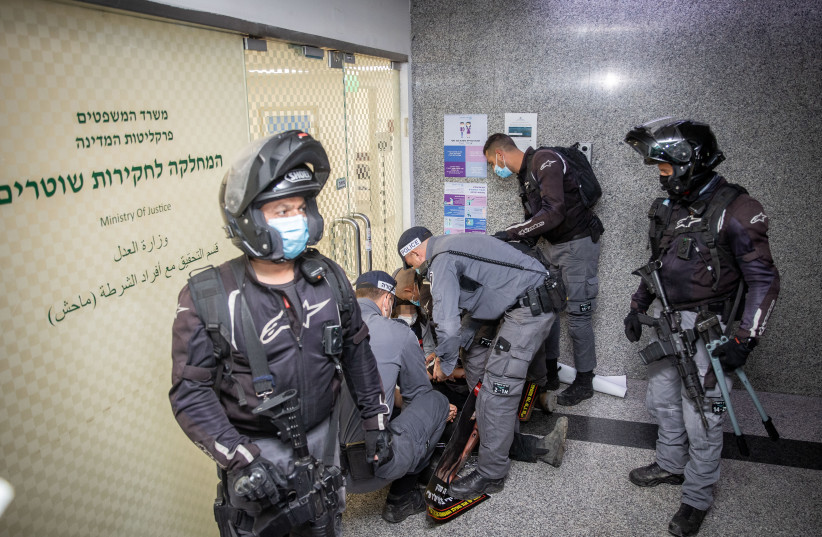The Police Internal Investigations Unit may need to be removed from the State Attorney’s Office due to problems with the division’s operational independence and shortfall in investigating officers, the state comptroller assessed in a Tuesday report.
“The removal of the Police Internal Investigations Unit [Machash] from the State Attorney’s Office should be examined,” said State Comptroller Matanyahu Englman. “The institutional association of Machash with the State Attorney’s Office and the Police Disciplinary Department with Police Human Resources influences their ability to have full functional independence.”
The police internal affairs system (IA), in which severe complaints against officers were addressed by Machash and less serious cases dealt with by the disciplinary department, according to Englman created conditions in which there were challenges in communication and unclear guidelines about the division of labor. Police said that they carefully weighed the evidence and case before being directed to the proper authority.
Issues of a split IA system, in addition to limitations by regulations, resources and professional capabilities of investigators, led to deficiencies in internal investigation duties.
Inefficiencies resulted in long periods of suspension for officers. The average period of suspension was a year and a half, according to the report. This comes at a cost to taxpayers, as during these suspensions, officers are paid salaries. Between 2018-2019, the police paid NIS 9.7 million in salaries for suspended officers.

The Israel Police told The Jerusalem Post that it strived to reduce the duration of forced vacations and suspensions, but that the officers rights needed to be preserved. Extended processes were sometimes inevitable due to the complexity of some of the cases. Often the delay lies with authorities outside the police.
The police were also found to have spent NIS 3.4 million on legal aid for officers.
Few indictments despite high number of complaints
The report indicated that few indictments were filed against officers. In 2021 4,401 complaints against officers were filed to Machash, a 34% increase compared to 2019. 1.2% of complaints, or 68 cases, resulted in indictments. The majority of complaints, 55%, ended with non-criminal organizational disciplinary action. Another 12% ended in warnings for the officers.
The police said that disciplinary actions were carried out in accordance with the law and police procedures, and each case was examined closely before each decision was made.
“The Israel Police takes seriously any unusual behavior that is not in line with the norms of behavior and the organization’s values, and each incident is handled accordingly,” said the Israel Police in response to the comptroller’s report.
Englman called on the Attorney-General’s Office to lead an inquiry with representatives of the Justice Ministry and National Security Ministry to compare the Israel Police IA system to that of other states. The findings should be presented to the justice and national security ministers.
However, some members of the government’s coalition have already been advocating for the separation of Machash from the State Attorney’s Office.
Former deputy Machash commander and current Likud MK Moshe Saada proposed in December a bill to split the bodies with the stated aim of preventing conflict of interest.
“The state comptroller confirms what I have been warning about for a long time – the police and the State Attorney’s Office are in a structured conflict of interest that gives the senior police and the prosecutor’s office immunity, allows for miscarriages of justice and harm to the citizens of the country,” Saada said.
The bill, sometimes referred to as the “Saada Law,” says in its explanatory notes that because the police and State Attorney have a close working relationship, the decision to open investigation and filing of indictments is essentially taken against colleagues.
The Saada Law is currently in committee before its first reading and in Knesset committee review, but has already garnered controversy. Former state attorney Shai Nitzan accused Saada of being motivated by a personal vendetta. The State Attorneys’ Organization, which claims to represent lawyers working in the office, threatened to strike in February because the move would allow investigation of them and thereby a change in their work conditions.
“We will bring the law to the Knesset for approval, and we will fix the system for the benefit of all Israeli citizens,” said Saada.
